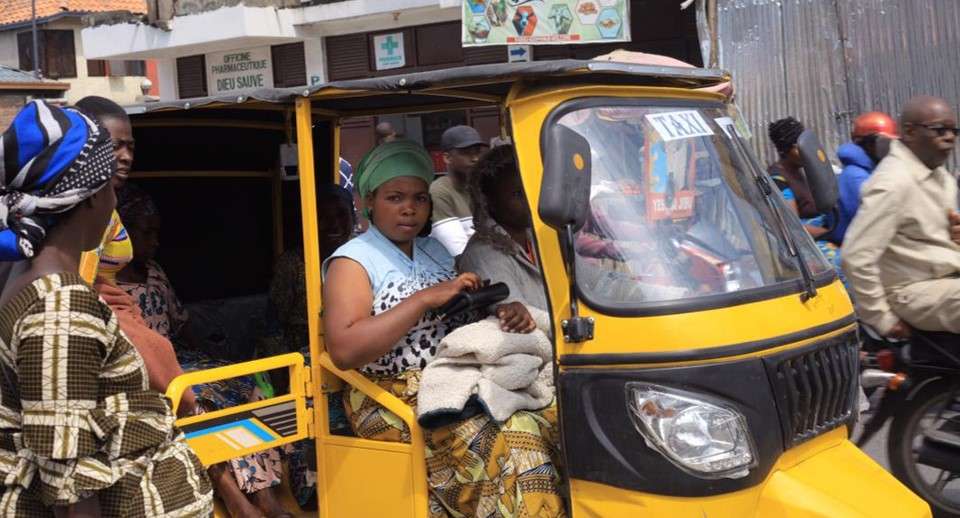
Congolese Women Drive Themselves Out of Poverty
Union for Progress
In the Democratic Republic of Congo, one of Africa’s most populous countries, it’s rare to see a woman in the driver’s seat.
A lack of access to education and widespread belief in traditional gender norms often mean that women are excluded from the formal sector when it comes to employment, including the public transportation sector. Currently, many women work in the informal sector, where they account for 83% of the workforce primarily in low-skilled, low-income economic activities, including part-time and casual work. Their pay often amounts to less than $1 US per day. This creates a significant gap between the quality of men’s and women’s employment.
Funded by the Fund for Innovation and Transformation, Union for Progress Inc. and their local partners Umoja ni Nguyu (UnN) tested a gender-transformative solution to empower women by integrating them into traditionally male occupations, while helping to ensure their urban safety. This included training them in the use of electric tricycles – three-wheeled vehicles that can accommodate several passengers. The tricycles are larger than motorcycles, which are commonly used for transportation services. They provide a much safter option, especially for women travelling with children.
The innovation solicited support from spouses, community leaders and men already working in the public transport sector. Additionally, women benefited from a series of training courses, including basic mechanics for machine maintenance, basic financial knowledge, and gender equality.

“I have always had the desire to do things differently, especially in the way of men, to try and break the taboo of the limitation of sex,” said one of the women participants. “So this project came at the right time to allow me to test this ability to do things unlike others - that is - a woman can also drive the public transport engine, earn her bread, and feed her family.”
A total of 80 women (50% under 36 years of age and 35% from vulnerable groups) were trained to drive electric tricycles, enabling them to earn a decent living. Over 96% of participants declared that they had earned a sufficient income as a result of the innovation.
Women’s decision-making power also improved significantly - at baseline 15% said they felt empowered and by the endline this number jumped to 91%. All participating women confirmed that the innovation had contributed to their empowerment at the family and community level. Public attitudes to gender equality had also changed. Survey results indicated that an average of 91% of women and 83% of men said they had improved their attitude toward gender equality.
“At first, when I spoke to my husband (about the project) he laughed at me,” said another woman participant. “But now he himself has become a spokesperson for gender equality because he has seen for himself that equality does not harm. It builds a home where living together becomes pleasant because everyone contributes.”
Ms. Zawadi, a woman participant who saw her gross income rise from $73 US per month to $364 US, was able to transform her life and that of her family.
“When the project started, I was optimistic, but my husband discouraged me by saying that I’m wasting my time with these learnings and the story of gender equality. Now, thanks to this project, I’ve become the one who makes a major contribution to improving my family’s quality of life in terms of food, healthcare and children’s schooling. I’m very proud of this achievement.”


